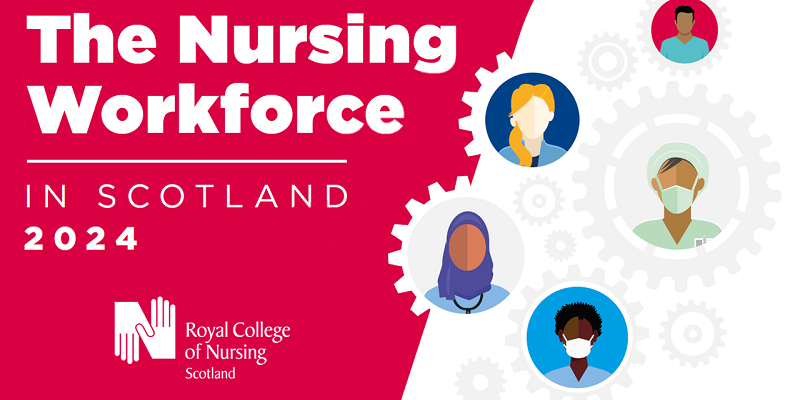News
RCN Scotland calls for the Scottish Budget to prioritise health and care services
Our latest report calls on the Scottish government to set out investment to grow and develop Scotland’s nursing workforce for the future, as it faces no respite from the nursing workforce crisis.

Connect with us:
Nursing workforce challenges across health and care services are as acute as when we called for a fully-funded nursing retention strategy in our third Nursing Workforce in Scotland Report published in May this year.
In an update published today (Friday 29 November), ahead of next week’s Scottish government budget statement, we have reviewed progress on the 10 recommendations made in May’s report and concluded that there is ‘little sign of improvement’.
The update shows that:
- While the vacancy rate has reduced, the number of staff in post is stagnant rather than growing. The net effect is that the NHS is still thousands of nurses short.
- The Nursing and Midwifery Taskforce is currently finalising its report. While it has the potential to address a number of the issues we have been raising, it is only the first step in the process. Implementing the Taskforce’s recommendations will take time, money and resources and RCN Scotland will continue to monitor progress, and hold the Scottish Government and employers to account, after the Taskforce has reported.
Commenting, Colin Poolman, RCN Scotland Director, said:
“On the face of it, the falling nursing vacancy rates in NHS services suggest progress. But in reality, the fall only masks the fact that employers are simply cutting the number of posts they say they need to provide care. This approach is unsafe and unsustainable. The actual numbers of nursing staff in post are relatively unchanged and NHS Scotland still requires more than 3,000 nursing staff than it currently has.
"Meanwhile social care providers continue to struggle to find nursing staff at a time when people living in care homes are living with increasingly complex healthcare needs.
“Nursing is a safety critical profession and the evidence clearly shows that lower numbers of registered nurses harms patient outcomes. Investment is badly needed to retain and recruit the workforce that Scotland requires, and to create a safe, compassionate and rewarding working environment.
“Funding our health and social care services is a political decision. Yes, budgets are tight but the costs of not investing in nursing are significant both in terms of the long-term impact on service delivery, and the very real risk of harm to patients and residents being cared for today. Safe nurse staffing levels should be non-negotiable.
“The Scottish government still has much to do to if it is to solve the nursing workforce crisis, reduce health inequalities and attract the workforce needed to provide the people of Scotland with the quality of care they should expect.”











